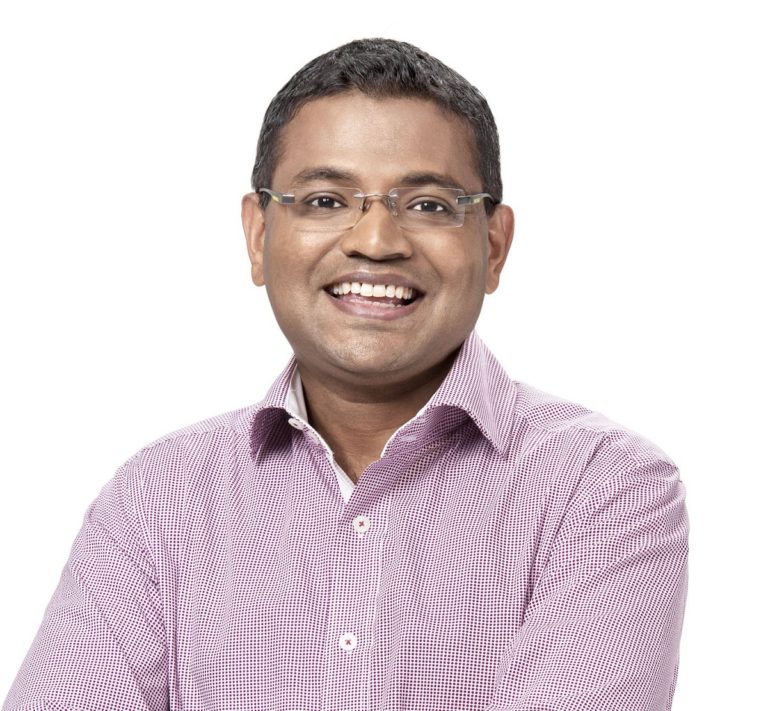
Professor Joseph Selvanayagam
The landmark findings of the ISCHEMIA trial favouring conservative therapy for stable coronary artery disease (CAD) are at risk of being overlooked because of the COVID-19 pandemic, according to a panel discussion at CSANZ 2020.
The study results, first released in late 2019, showed no benefit of routine invasive therapy on major adverse cardiovascular events compared with optimal medical therapy for patients with stable CAD and moderate or severe ischaemia.
One of the few benefits seen in the 10-year $100 million international study was an improvement in quality of life for the one third of patients who had angina symptoms, said the lead Australian investigator, Professor Joseph Selvanayagam of Flinders University, South Australia.
He told the meeting that ISCHEMIA showed a 2% higher rate of procedural MI versus medical therapy, but there was crossover after two years so that invasive therapy was associated with a 2% lower rate of spontaneous MI.
“So one of the buzzwords that came out of ISCHEMIA was shared decision making and I think that’s important whichever hat you’re wearing,” he said.
The meeting heard that the ISCHEMIA trial had confirmed the results of the previous COURAGE study and complemented those of the more recent ORBITA study that found only a small effect of revascularisation compared to placebo on exercise capacity and symptoms in patients with stable CAD.
The lead investigator of that study, UK cardiologist Dr Rasha Al-Lamee, was part of the discussion and said that the ISCHEMIA findings now showed that invasive therapy was not a lifesaver and therefore the attention was now back on what it could do for symptoms.
“I think we are now at a point where we can say in these stable patients then if we get them on the right medications then their event rates – and in particular the hard event rates such as cardiovascular death – are very low and they do very well in the long term from that point of view,” she said.
She added that with the focus back on symptoms, there was a question about a placebo effect in ISCHEMIA since it was not a blinded trial.
“However I think that the link between symptoms and ischaemia is much more complex than we first appreciated. What we’ve known for a long time is that you can scan a lot of patients and find some have a lot of ischaemia and no symptoms at all and some may have symptoms but no ischaemia when you stress them.”
Dr Al-Lamee said she thought the way forward even in symptomatic patients is to start with medical therapy and to reserve PCI for patients who fail that.
However a note of caution was sounded by Associate Professor Jayme Bennetts, a cardiothoracic surgeon from South Australia, who said there was still uncertainty about the differences in outcomes for patients in the invasive arm of the trial of whom 25% had surgery rather than PCI.
And Dr Sidney Lo, a cardiologist at Liverpool Hospital, NSW and head of the CSANZ Interventional Council said the ISCHEMIA results were “not news” for clinicians doing PCI
“We have been doing stenting for symptoms and for difficult patients those with many anti-anginals. But I think we are now focusing much more on who we are stenting rather than just reflexly offering stenting and we are doing more coronary physiology to justify why we are doing stenting,” he said.
Dr Lo added that the ISCHEMIA trial had also acted as a wake up call for interventional cardiologists to ensure that medical therapy was optimised for patients and that this was followed up in the longer term.
Professor Selvanayagam said he hoped the CSANZ 2020 meeting would re-start discussion of the ISCHEMIA findings, which had been overshadowed by since their official publication in the NEJM in the midst of the pandemic.
“That’s really the challenge for us and COVID-19 hasn’t helped because it’s taken away the opportunities at national meetings to translate this, so hopefully we will now be able to propagate this over the next 12 months,” he said.